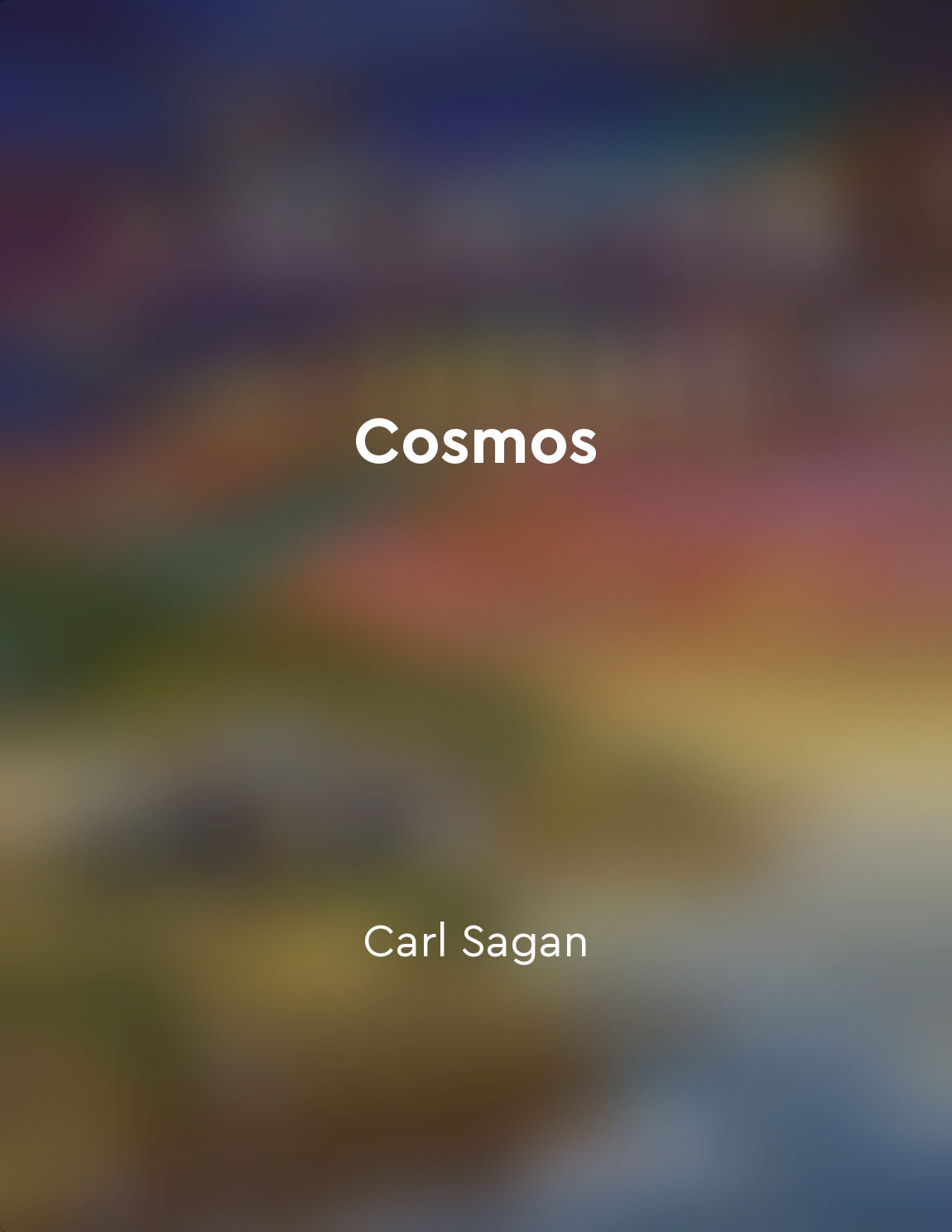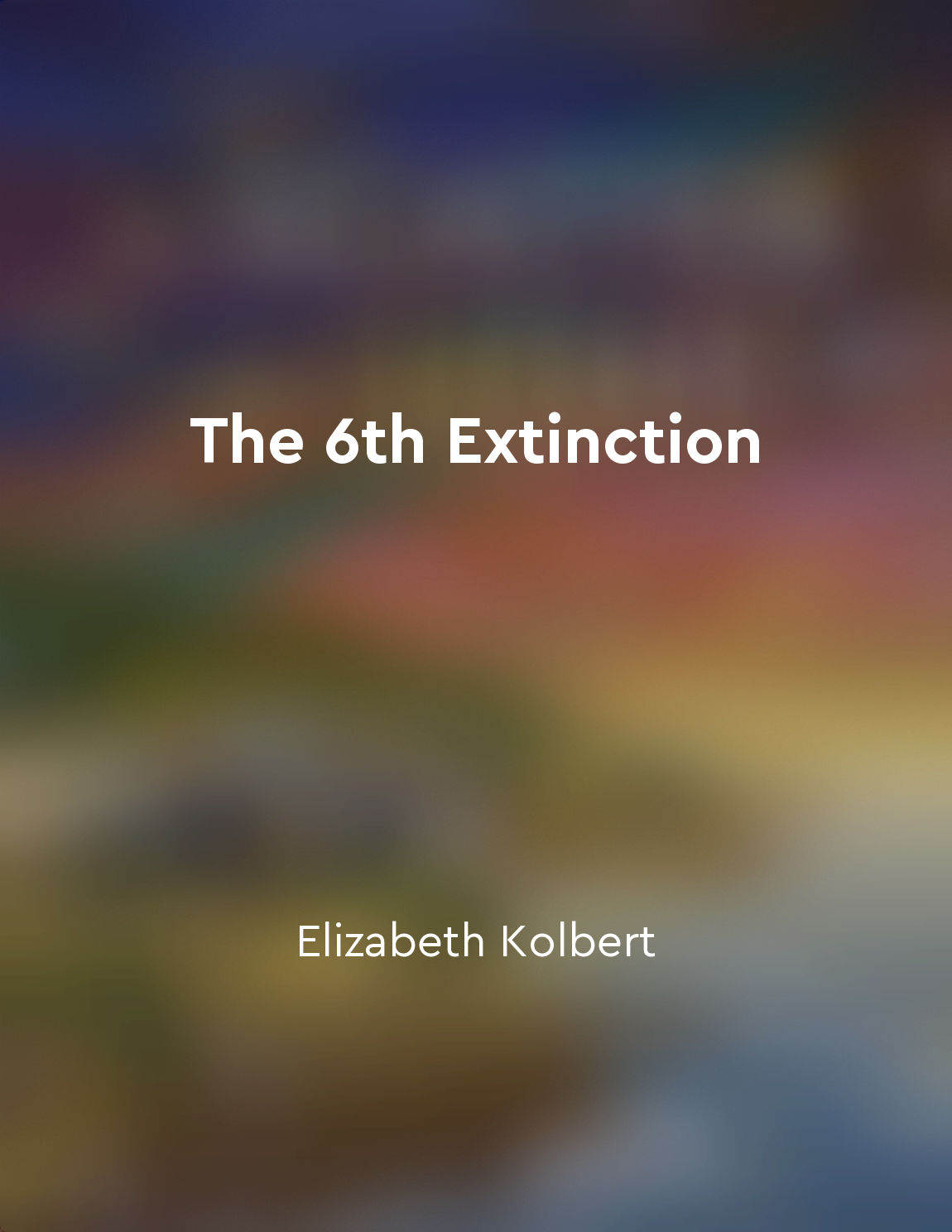Mimicking nature enhances resilience from "summary" of Learning From the Octopus by Rafe Sagarin
When we observe nature closely, we see a multitude of intricate strategies that organisms have developed to survive and thrive in their environments. These strategies have been honed over millions of years of evolution, resulting in highly efficient and resilient systems. By studying and mimicking these strategies, humans can learn valuable lessons on how to navigate complex and uncertain environments. One key aspect of nature's resilience is its ability to adapt to changing conditions. Organisms have evolved to be highly flexible and responsive, adjusting their behavior and physiology in real-time to meet the challenges they face. By emulating this flexibility, humans can enhance their own resilience in the face of unpredictable events. Another important lesson from nature is the power of diversity. Ecosystems are incredibly diverse, with a wide range of species each playing a unique role in maintaining the overall health and stability of the system. This diversity provides a buffer against disturbances, ensuring that the ecosystem can continue to function even when individual species are lost. By embracing diversity in our own systems and organizations, we can build in redundancy and increase our capacity to withstand shocks. Nature is also a master of efficiency, with organisms continually optimizing their energy and resource use to maximize their chances of survival. By studying these efficiency strategies, humans can learn how to streamline their own processes and reduce waste, ultimately increasing their resilience in resource-constrained environments.- The concept of mimicking nature to enhance resilience is a powerful one that has the potential to transform the way we approach a wide range of challenges. By looking to nature as a guide, we can tap into billions of years of evolutionary wisdom and develop innovative solutions that are not only effective but also sustainable in the long term.
Similar Posts
The Earth's carbon cycle is a key process in regulating the planet's climate, with carbon being exchanged between the atmosphere, oceans, land, and biosphere
The Earth's carbon cycle plays a crucial role in maintaining the planet's climate equilibrium. Carbon is constantly moving betw...

The quest for knowledge knows no bounds
Throughout our journey of exploring the cosmos, we have come to realize that the pursuit of knowledge is an endless endeavor. I...
Biodiversity is at risk of disappearing
The intricate web of life that we call biodiversity is facing a grave threat, one that could lead to its eventual disappearance...

Loss of keystone species can have cascading effects on other species
The disappearance of a keystone species can set off a chain reaction, impacting the entire ecosystem. This is because keystone ...
Parasitism, mutualism, and commensalism are types of symbiotic relationships
In nature, organisms often interact with each other in various ways. These interactions can be classified into different types ...
Education is essential for creating a sustainable future
Education holds the key to unlocking a sustainable future for our planet. By equipping individuals with the knowledge and skill...
Hope lies in our ability to take action
The idea that hope lies in our ability to take action is a powerful one. It suggests that we have the power within ourselves to...

Overcoming challenges for a sustainable future
The path to a sustainable future is fraught with challenges that test our resilience and determination. It requires us to confr...
Biodiversity is the key to a healthy ecosystem
Biodiversity is the variety of life forms that exist on Earth, encompassing all living organisms, from the smallest microorgani...

